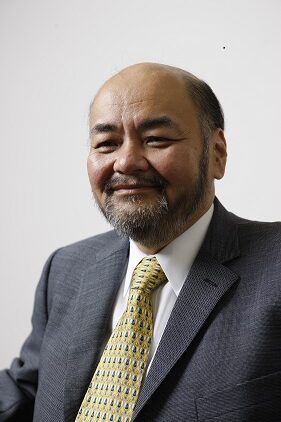A message from chairman
I am Tatsuro Niikawa, who has been appointed as chairman of the Kyoto Environmental Activities Association (KEAA). I became the successor to the resignation of former chairman, Dr. Hiroshi Takatsuki, who has contributed to development of KEAA and its work for many years. Considering Dr. Takatsuki’s long-standing contribution to public health, waste treatment research and civil activities related to environmental issues, my ability to carry out its work might be partially lacking. I would like to make every effort to fulfill the mission of KEAA with the help of multi stakeholders and general citizens.
For many years, KEAA’s main task has been to manage and operate the Kyoto Municipal Center for Promotion of Environment Protection known as Miyako Ecology Center under as the Designated Administrator.
“Miyako Ecology Center” was established by Kyoto City Government in 2002 to commemorate the 3rd session of the Conference of the Parties to the United Nations Framework Convention on Climate Change (COP3) in Kyoto. It is an environmental educational facility for citizens. The themes o learning include prevention of global warming, issues related to waste disposal, biodiversity and other great environmental interest to the public.
It goes without saying that the global environmental issues have become one of the most significant challenges that can be also described as the “Climate Crisis”. The crisis is having a significant impact not only on climate but also on ecosystem itself, and the loss of biodiversity has been indicated. It is implied that one of the greatest causes of such results is due to human activities. To solve these problems, biodiversity conservation and global warming mitigation and adaptation measures are indispensable. Solving these problems requires the global cooperation, as well as the efforts of every citizens from each region.
KEAA has been working to aim for Zero Carbon Society, Environmentally-Sound Material Cycle Society, and Environmentally Symbiotic Society (society in harmony in nature) in in the area of Kyoto city. Now, Kyoto city government is also aiming for zero carbon dioxide emission (Zero Carbon Society) by 2050.
In 2019, “Waste Reduction Promotion Conference of Kyoto” joined KEAA. It was started in 1996 to accelerate the scheme of reducing waste in Kyoto city. It was originally started as a partnership organization with Kyoto city government from the viewpoint that reducing waste should be promoted not only by the local governments’ but also by citizens and businesses. To date, we have been developing various activities by collaborating with local citizens and private sectors. For example, there are recycling of confidential document and milk carton from school lunch, seminar of “How to reduce waste” for private sectors and local public, participation in educational events (booth exhibition), and promotion of 2R initiatives focusing on Reduce and Reuse and so on.
Additionally, “Miyako Agenda21 Forum” joined KEAA in 2019, which originally started activities in 1998. It started as respond to the conclusion of the Kyoto Protocol in 1997 and has tried to realize the local action guideline of the local agenda called “Miyako Agenda 21” which were formulated by the partnership of industry-academic-government-citizens in Kyoto. Their activities have focused on mitigation of global warming, while including the creation of energy-saving label models for home appliances, and developing and implementing environmental management systems (KES) for small and medium-sized private business. The agenda has made great achievements, such as promoting social experiments and implementation to realize these proposals and spreading these activities throughout society.
To accomplish KEAA’s mission, the strengths of each 3 organizations, such as the accumulation of valuable knowledge and skills, and, above all, the rich and abundant network through partnership, must be shown as greater achievements through the organizational integration. Due to this, we believe that Zero Carbon Society, Environmentally-Sound Material Cycle Society, and Environmentally Symbiotic Society (society in harmony in nature) can be realized from the area of Kyoto.
The SDGs set forth in the Unite Nation Agenda 2030 is to be a most urgent issue for the immediate 2030 in the world. It is also an urgent task to aim “Japan’s 2050 Carbon Neutral Goal” which then City of Kyoto takes the lead to launching. In order to tackle such goal, it is significant for us to work in partnership with all the stakeholders in Kyoto including local citizens and NPOs, private sectors, educational organizations, administrations and so on, and get together with their knowledge and resources.
Although given the challenges we are facing is quite petrified, the network we have shaped with various stakeholders is powerful and the accumulation of their knowledge and skills through the network are invaluable assets. I am convinced that it is important to make steady efforts to solve environmental issues while making the best use of those network and assets.
Valuing our partnership with all of you, I hope that we can promote our environmental conservation activities even more actively both internally and internationally, within and outside of regions, and beyond the field of activities or sectors.

Tatsuro Niikawa
Chairman
Kyoto Environmental Activities Association (KEAA)

